Written by Katie, Hiptipico Marketing Director
Please note that this interview has been translated
Get to know our artisan partner, Juana Xoch!
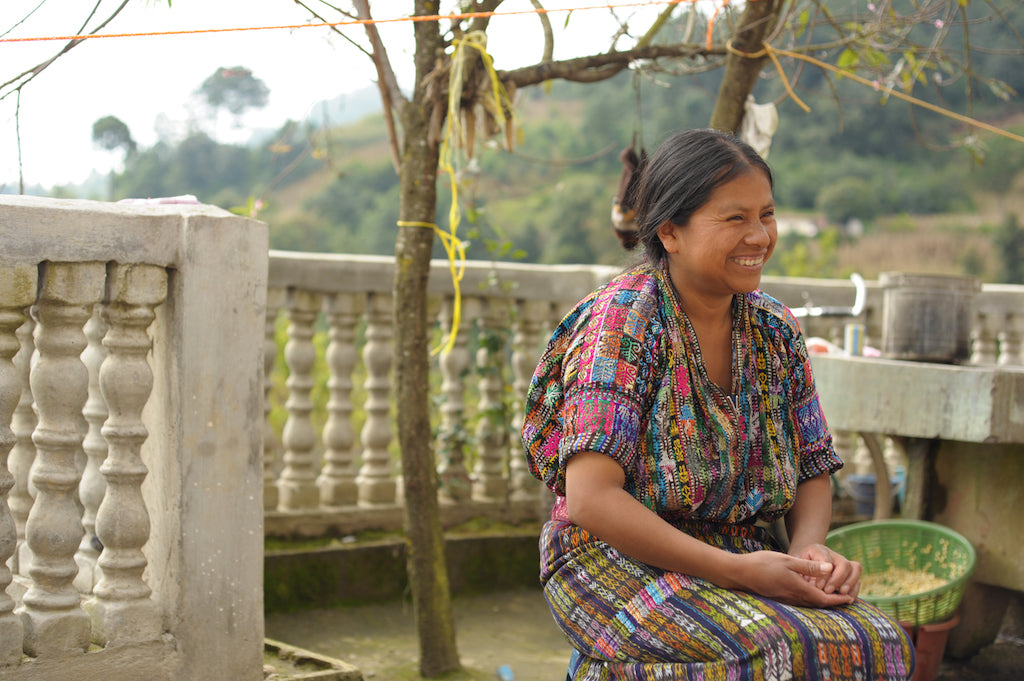 Juana in her home village of El Triunfo
Juana in her home village of El Triunfo Juana is a 33-year-old mother of two young boys, with an honest disposition and strong entrepreneurial spirit. Juana is the focus of our first Artisan Spotlight because of her long-term and unique relationship with Hiptipico. In 2007, Juana started an artisan cooperative in her home village of El Triunfo, Guatemala. Juana’s main motivation in founding the co-op was to create a sustainable source of income for herself and 10 other women in her village. In 2012, Juana met Hiptipico founder Alyssa McGarry through a mutual friend as the organization was beginning to grow. Alyssa and Juana immediately formed a special connection over their mutual love of using traditional techniques and pouring their hearts and souls into every product.
As Marketing Coordinator for Hiptipico, I had the pleasure of interviewing Juana on multiple occasions and I finally understand just how far this group of women has come since the cooperative’s inception. Reading this interview, you will also receive the same firsthand account from Juana’s perspective. I am sharing Juana’s story with the hope that you can feel Juana and the co-op's dedication to preserve their culture and appreciate their struggle to overcome economic hardship in rural Guatemala. 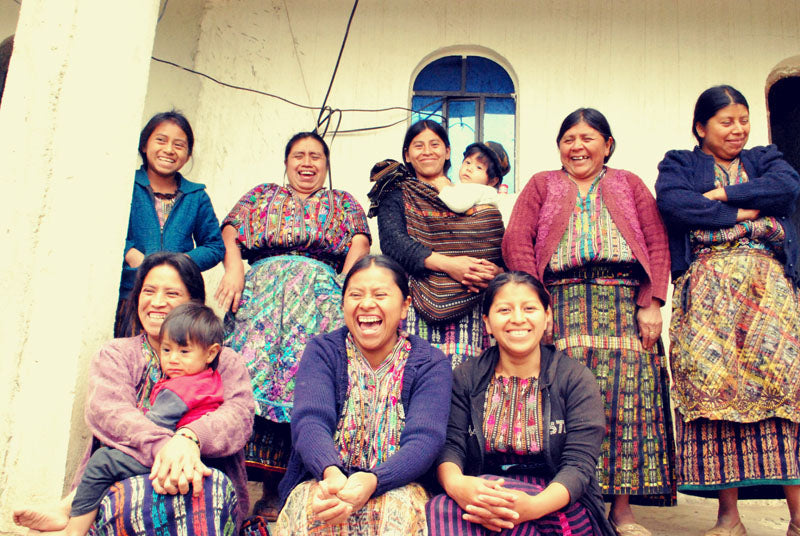
What is your current job?
I work part time both with an organization in Sololá called Community Enterprise Solutions and the Artisan Cooperative in my village. I started at Community Enterprise Solutions back in 2004 as a community worker. The company’s overall mission is to empower businesses and entrepreneurs to make a difference in their communities. My first position there involved traveling to different rural communities to educate them on issues ranging from water sanitation to poor eyesight complications. I would then sell useful products like eyeglasses and water filters to them at a discounted rates suitable for their income level. Now I manage a team of community workers out of our regional office in Sololá. I am also the founder of an Artisan Cooperative in El Triunfo and continue to work with the female artisans part-time.
How did the cooperative start?
I founded the cooperative in 2007. Before that, I lived and worked in Sololá with over 200 women making crafts for a larger company. While I was there I learned sewing, beading, and different embroidery techniques. When I married in 2007, I decided to return to my village of El Triunfo and I quickly realized that many women there did not have consistent work. Their only income was from selling huipils (traditional Maya blouses) at the local market and their income was extremely low and inconsistent. After seeing how they struggled, I decided that we should all join together and start designing and selling our own products. Shortly thereafter, the women of my village including my family, friends, neighbors, and relatives, all united with me from the cooperative in our village of El Triunfo. Using my training in beading and sewing from Sololá, I trained the women in how to make different products, mainly with new beading techniques, hence starting our first collection.
What products does the Cooperative create?
We make a variety of products and can customize anything. We started by crafting beaded bracelets and necklaces; hand woven scarves and ponchos; and intricately beaded small pouches. After I met Alyssa and we started working with Hiptipico, we refined our product selection to target a more global market. Alyssa suggested that we focus on larger beaded clutches instead of key chains and pouches to appeal to a more luxurious consumer. She helped us with new design suggestions, which I quickly learned and taught the other cooperative members. The clutches are now our main source of income and are unique to the Cooperative and exclusive to Hiptipico. Alyssa tells me they have been sold all around the world, even in New York, France and Japan! 
Where else does the Cooperative sell its products?
In 2007, we started selling our products in Panajachel and Antigua. These are two major touristy areas in Guatemala with large amounts of foreign travelers and expats to buy our goods. However, tourism changed in 2008 with the economy and Panajachel became extremely difficult to sell in and Antigua became overly expensive with the cost of transportation. I was the only cooperative member to sell our products in Antigua because my job Community Enterprise Solutions would send me there for meetings. I would take advantage of the free transportation costs from El Triunfo to Antigua and sell late at night in the main square after my meetings. I quickly realized this wasn’t sustainable. If I couldn’t go to Antigua for work, there was no one to sell our products. Also, I am the only woman in the cooperative that speaks Spanish and feels comfortable to leave El Triunfo. Our village is very traditional and the women only speak Kaqchikel and typically do not travel far from the home. Therefore, the women always turned to me for guidance. Allie, my co-worker at Community Enterprise Solutions, started assisting us by organizing a Christmas order each year with her friends and family back in the USA. From that point on, all her coworkers from the USA would promote the co-op to their relatives during the holiday season. Through my connections with expats in Guatemala, I soon was introduced to Alyssa and Hiptipico. 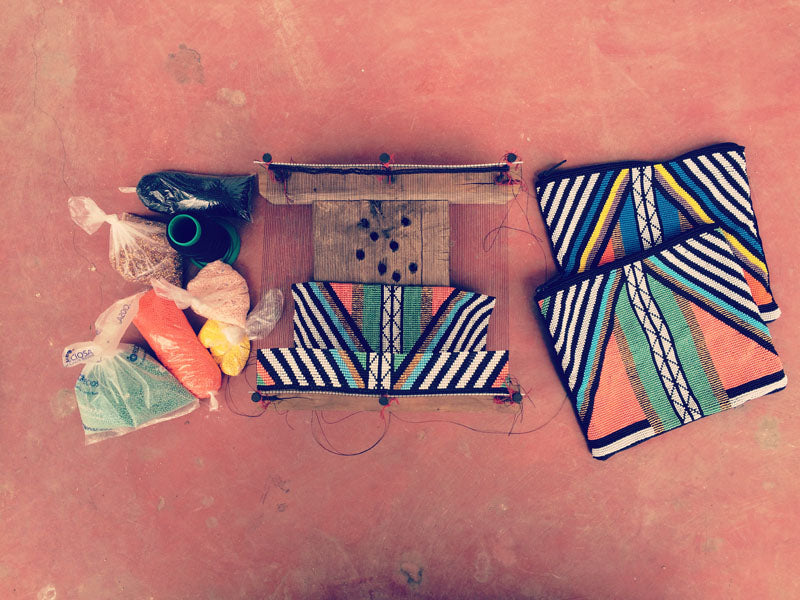
How many orders does the Cooperative need to thrive?
Ideally, each woman would like an order of three clutches per month for a total of 30 clutches monthly. Whenever there is a large order, the women are extremely grateful because they are able to use the money to send their children to school. Education is a huge part of the cooperative and was a founding principal of ours. Through education, the women ensure that their children will have more opportunities in the future by expanding their potential career options. 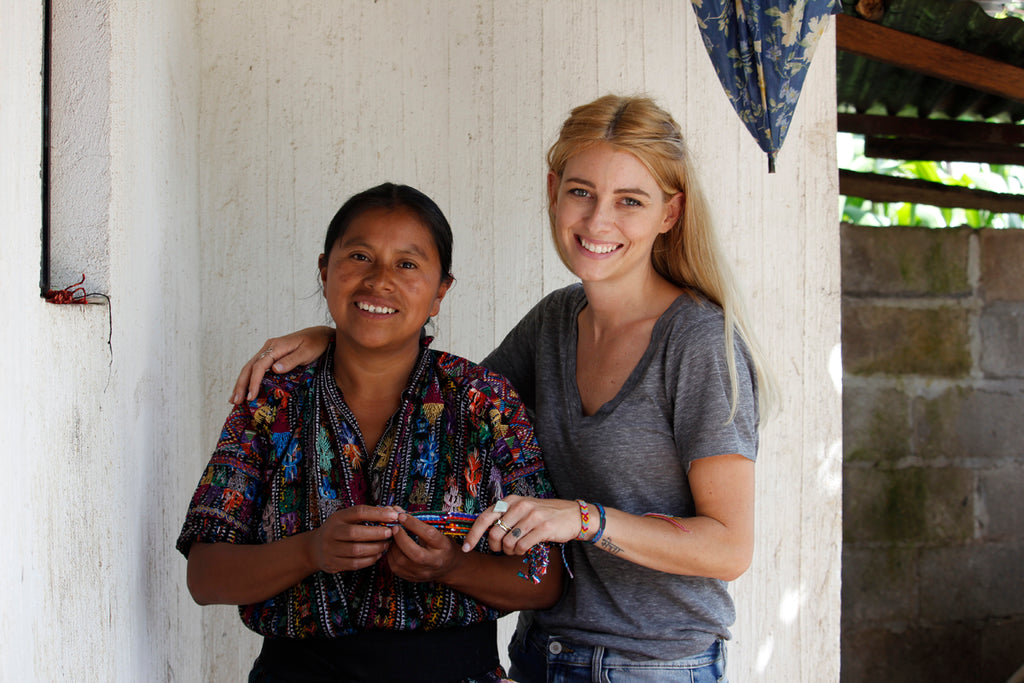
How has working with Hiptipico personally affected your life?
Hiptipico has a huge impact on our family and our community. Most importantly, the impact on both my life and my son’s life is immense because Hiptipico provides Jonathan with a scholarship to attend an international private school in Panajachel. Being able to send my son to a school outside of El Triunfo means everything to me because of the opportunities it will bring Jonathan in the future. Even though he’s only 5 years old, you can already see that he is changing with this quality education. He has gained a lot of confidence from attending this special school.
Before Hiptipico, our cooperative did not have consistent orders and the women did not have hope for the future. They were unable to pay for basic necessities and public school fees. Now I can see that the women are able to start planning for both their future and their family’s future by saving money and investing in education. 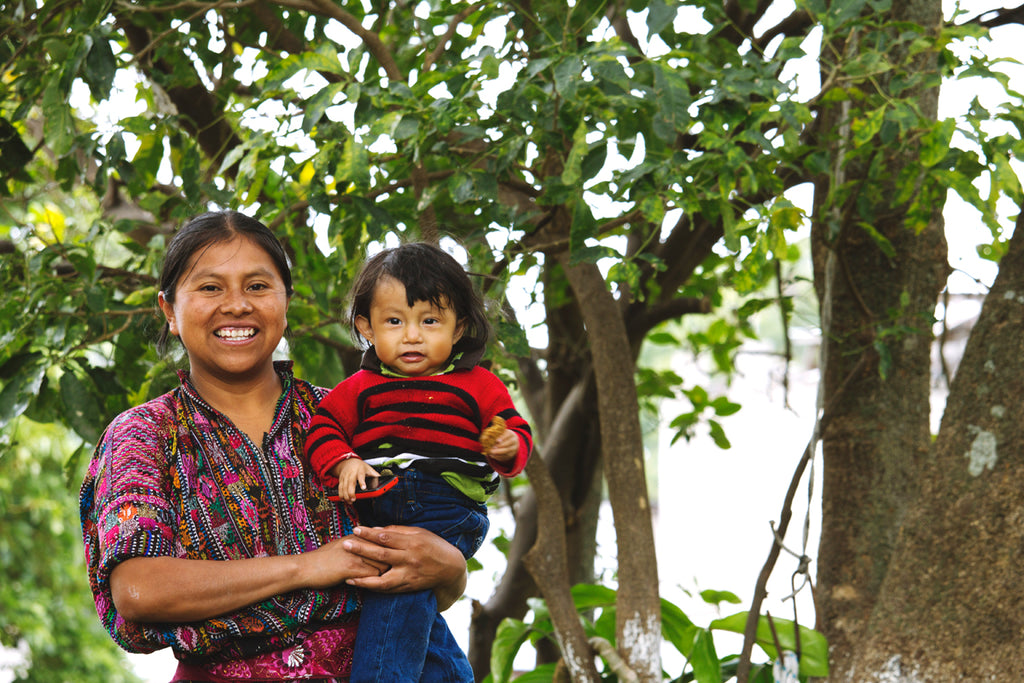
How has your experience been with Jonathan studying in Panajachel?
I feel incredibly fortunate that Jonathan is able to attend a private school because there is so much to gain from this opportunity. Jonathan attending this school has been a huge adjustment for our family. Jonathan and I now have to wake up at 5:30am every weekday. First, we pay for a private pickup truck from our community up the mountain to the highway. From there we take a public microbus to Los Encuentros and catch the bus to Sololá. In Sololá, we switch buses and head down to Panajachel. Arriving in Panajachel still leaves us a 15-minute walk from his school. Jonathan arrives at school by 8:00 a.m. everyday. Even though this is extremely difficult, it is worth it for the quality of education he is receiving. It is clear to me that he is already learning a lot. He is starting to use English more frequently and is becoming more comfortable with his Spanish skills. At home, we only speak Kaqchikel, and soon he will be tri-lingual. I am so proud of him for waking up early everyday and having such a positive attitude about his new school. 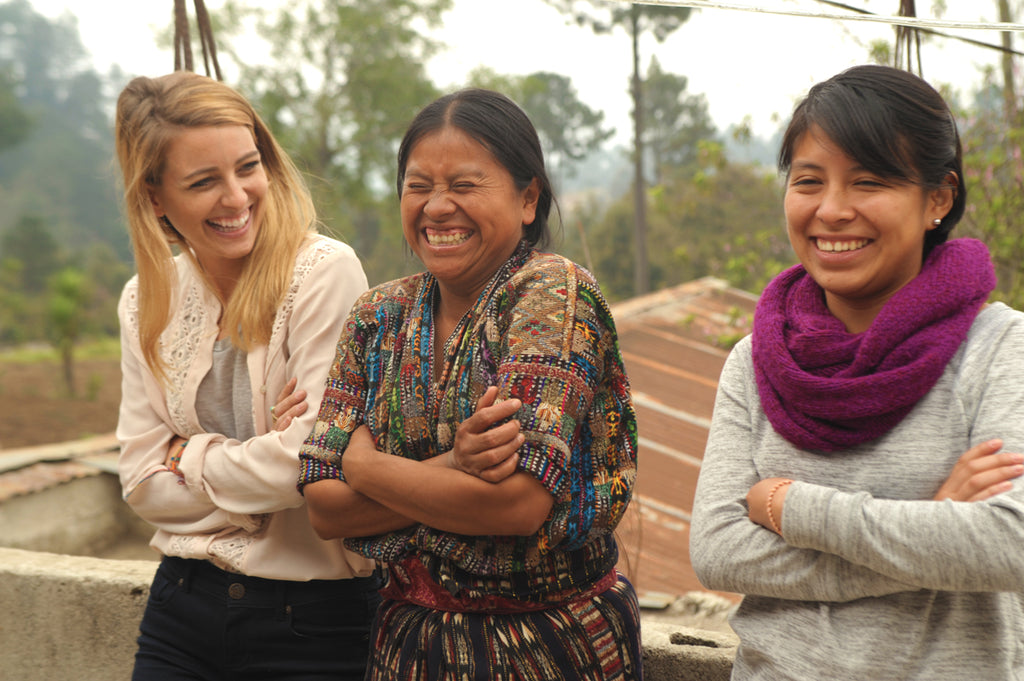
Shop these Handcrafted Products to directly give back to the women of Juana's Artisan Cooperative.
--
≫ Follow along LIVE from Guatemala and browse more of our fair trade products on Instagram (@hiptipico).
♡ See our female founder's daily posts featuring other ethical fashion brands and collaborations (@alyssaya).
≫ Be sure to like Hiptipico on Facebook for global news, travel and women's empowerment.








